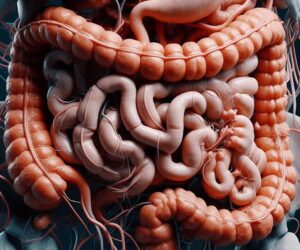Diarrhea is a common condition characterized by frequent, loose, or watery bowel movements. While occasional episodes of diarrhea are usually harmless and may resolve on their own, persistent or severe diarrhea can be a sign of an underlying health issue that requires medical attention.
Causes of Diarrhea:
- Infections: Diarrhea is often caused by viral, bacterial, or parasitic infections, commonly referred to as gastroenteritis or stomach flu. These infections are usually spread through contaminated food or water, or through contact with infected individuals.
- Food Poisoning: Consuming contaminated or spoiled food can lead to food poisoning, resulting in symptoms such as diarrhea, nausea, vomiting, and abdominal cramps.
- Medications: Some medications, such as antibiotics, certain cancer treatments, and laxatives, can disrupt the natural balance of bacteria in the gut and cause diarrhea as a side effect.
- Food Intolerances: Certain foods or ingredients, such as lactose (found in dairy products) or gluten (found in wheat, barley, and rye), can trigger diarrhea in individuals with specific intolerances or sensitivities.
- Inflammatory Conditions: Chronic conditions affecting the digestive tract, such as inflammatory bowel disease (IBD) or celiac disease, can cause diarrhea as a symptom of inflammation and irritation in the intestines.
Symptoms of Diarrhea:
In addition to frequent, loose, or watery bowel movements, diarrhea may be accompanied by other symptoms, including:
- Abdominal cramps or pain
- Bloating or gas
- Nausea and vomiting
- Fever or chills
- Blood or mucus in the stool
Treatment and Management:
- Hydration: It’s essential to stay hydrated when experiencing diarrhea, as the body loses fluids and electrolytes through frequent bowel movements. Drink plenty of clear fluids such as water, broth, or electrolyte solutions to prevent dehydration.
- Dietary Changes: Avoid foods and beverages that may exacerbate diarrhea, such as spicy, greasy, or high-fiber foods, caffeine, and alcohol. Opt for bland, easily digestible foods like rice, bananas, applesauce, and toast (BRAT diet) until symptoms improve.
- Medications: Over-the-counter anti-diarrheal medications such as loperamide (Imodium) or bismuth subsalicylate (Pepto-Bismol) may help reduce the frequency of bowel movements and alleviate symptoms. However, these medications should be used with caution and avoided in certain cases, such as diarrhea caused by bacterial infections.
- Rest and Recovery: Get plenty of rest to allow your body to recover from diarrhea and associated symptoms. Avoid strenuous activities that may worsen fatigue or dehydration.
When to Seek Medical Attention:
While most cases of diarrhea resolve on their own within a few days, it’s essential to seek medical attention if you experience any of the following:
- Persistent diarrhea lasting more than two days
- Severe abdominal pain or cramping
- High fever (above 102°F or 38.9°C)
- Bloody or black stools
- Signs of dehydration, such as excessive thirst, dry mouth, decreased urine output, or dizziness
Your healthcare provider can help diagnose the underlying cause of your diarrhea and recommend appropriate treatment options. If you have any concerns or questions about your symptoms, don’t hesitate to reach out to your healthcare provider for guidance.





